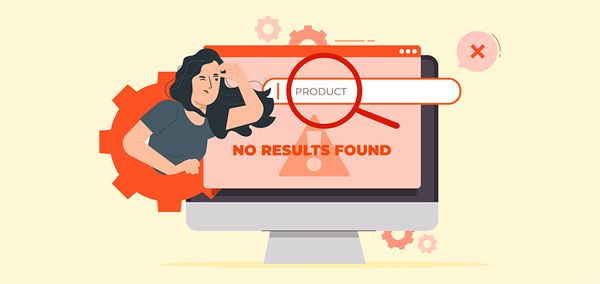What Are Wholesale Prices and Retail Prices - Get Them Clear

You undoubtedly want to know the distinctions if you've heard of retail and wholesale prices. To better grasp the difference between retail pricing vs wholesale price, we will study the key elements of wholesale and retail.
What Are Wholesale & Retail
Business owners now have a variety of delivery solutions to choose from, thanks to contemporary supply chain technologies. The two profitable product-based company models are wholesale and retail. They are well-liked distribution techniques and the foundational elements of the supply chain.
Large quantities of the items should be sold when the makers produce them. Following the wholesaler, the retailer is the next "player," who purchases items from the latter and sells them in lesser quantities to the ultimate consumers (piece by piece).
| Get Started Now to Grow Your Online Business with the Best AliExpress Dropshipping Tool - DSers! |
As a result, while retail focuses on selling smaller quantities, wholesale deals with many products or bulk selling. As a Result, the entire supply chain will malfunction and stop operating without both.
Understanding Wholesale Price & Retail Price Individually
The wholesale and retail processes are significantly different from each other as both are connected with the procedure of transferring the items from manufacture to distribution. Retailers' job is to purchase the stuff and sell it to the consumers. Retailers pay wholesale pricing to distributors.
Then, the shopkeeper charges customers a higher price (price included the profit margin of the shopkeeper) than he has paid to the producers or distributors for the identical goods.
What Is the Cost of Wholesale
The wholesale pricing is different from the retail Price since wholesalers don't deliver their goods directly to clients. Instead, they serve as a connecting link between producers and merchants. As a result, the Cost the manufacturer or company owner charges the merchant is known as the Wholesale Price. As a result, wholesale pricing is often the most affordable cost for a large quantity of goods.
How Much Is the Retail Cost
The most recent Price to show on shop labels or online store sites is the retail price. The store determines the pricing for the final customer. Retail prices typically include a hefty markup.
Proven Pros & Cons of Retailers
Retailers are sometimes referred to as "the connector between suppliers, i.e., wholesalers and customers," to summarise the preceding opinions on the definitions of wholesale and retail selling techniques. The retailers play a crucial role since they must determine the ultimate pricing of goods in stores. In actuality, shops frequently seem to be under pressure to increase or decrease prices.
For instance, operating margins, which may be as low as 5% or less than the wholesale Price from suppliers for goods being sold at the retail level, are often required to cover costs. Therefore, it is not unexpected that many merchants opt to sell numerous products rather than just one. Product bundling is another name for such a tactic.
Now that we are more aware of the primary retail pricing tactics let's briefly review the advantages and disadvantages of opening a store.
One of the industries that are changing the most quickly is retail. The retail sector in India has experienced a significant shift as consumers want convenience and various options under one roof. Well, let's discuss the top pros of retailers:
Low Investment Needs
Retailers are not required to make significant capital investments. As a result, it is now a viable choice for those on a tight budget. As a result, starting a business may be done without difficulty or financial risk!
When you run a retail business, you won't have any upfront expenses, such as setting up your store, purchasing merchandise, or paying rent. The manufacturers take care of all of these things. Merchants may profit by adding a markup to the wholesale rates and selling them to customers.
Credit Resources
Although there are many different advantages for merchants, one of the most significant ones is the ability to offer their goods on credit.
Since they deal in considerably bigger numbers and are unwilling to take the risk on smaller quantities, wholesale enterprises lack this facility. With such benefits, businesses are able to pay for their inventory over time while remaining confident that they won't face penalties for paying late.
Here we have a prepared list of main drawbacks of retailers. Give a thorough read to understand better:
Advertising Fees
Although marketing is the foundation of any successful company, it's not always simple for small businesses or new business owners to invest. When a shop is just getting started, this may be tremendously difficult. In addition, putting money in the budget for marketing might mean skipping out on things like salary!
Increased competition
There are too many items and vendors competing for customers on the market. In addition, many other businesses compete for customers and money with their goods (and prices). As a result, merchants frequently find themselves in a brutal scenario where they must be fiercely competitive and provide unbelievable discounts and offers to attract customers.
Benefits and Drawbacks of Wholesalers
Let's notice that this method relates to companies who sell goods or products in significant numbers after summarising the concept of wholesaling. For example, a wholesaler often purchases a product in bulk from a manufacturer or distributor and then sells it in much smaller quantities to retailers, who subsequently sell it to customers.
Compared to retailers, wholesalers offer both benefits and drawbacks. So, let's begin with the advantages of wholesalers:
It's common for business owners to want to reach their target market as effectively as possible, so many opt for doing it through wholesale markets.
Reduced Prices & Allowance
Wholesalers purchase goods in bulk from producers. Thus, obtaining discounts and exclusive offers is one of the benefits of working as a wholesaler. Apparently, the manufacturer or supplier may provide the wholesale customer with additional savings, benefits, or incentives that are not accessible to the broader public.
The supplier may also offer extended credit terms to wholesale customers, enabling them to spread out their product purchases over longer periods of time.
Less Competitive
There is typically less competition to buy things since wholesale purchasers buy in bulk. This may increase the buyer's leverage when haggling over pricing with suppliers.
Like their retail counterparts, wholesalers take various risks when they buy merchandise from manufacturers and sell it to their clients. Let's understand the more cons of wholesalers:
Massive Capital Needs
Wholesalers have difficulty committing significant financial resources to buy items in bulk. This may make it difficult for new firms to get started. But it's essential to remember that going too far is never an option. To prevent overstocking or backorders, wholesalers must maintain proper stock levels.
Costs of Shipping and Storage
Purchasing a warehouse, inventory management software, and other strategic elements are required to become a wholesaler. Wholesalers are also responsible for paying for the shipment and storage of their goods. Therefore, the Price of starting a new firm might increase dramatically as a result of additional costs.
Retail Price and Wholesale Price: What Differentiates Them
Even the most experienced wholesalers maintain a disciplined approach to understanding the subtle differences between wholesale and retail prices. This post section will discuss how retail Price differs utterly from wholesale Price. Give a shine below:
- There are several benefits for wholesale firms. There is no need to promote products, lease a space, or consider how to showcase your hobbies. You merely need to communicate with the stores and handle vast quantities of merchandise. As a wholesaler, you should also be prepared to ship goods to other nations and cities.
- The wholesale price is always less expensive than the retail Price in terms of pricing. The wholesaler has determined a cost for the product as well as a profit cost, which the retailer must pay.
- The proprietors of stores, whether physical or online, purchase products from wholesalers to sell them to their consumers. They, in turn, have the option of engaging in both retail and wholesale trading. The retail Price exceeds the wholesale price. The merchants themselves decide prices. They are not based on the quantity of items, unlike wholesale. However, it may occasionally be reduced if the vendor chooses, for instance, to provide a discount.
- Regarding the increased retail Price, it includes expenses. In the retail business model, there are expenses for packaging, salaries, bills, paid plans for the platforms used in e-commerce, and many other things.
Formula to Calculate the Retail Price
When establishing retail prices, it is important to keep in mind that several techniques exist for various business kinds. Therefore, the best course would be to begin market research and pricing comparisons. Additionally, the clientele segment should be very important; you need to know who to sell to.
You should ascertain the wholesale Price before moving on to setting a price. The profit margin, typically aimed at between 55 and 65 percent, should then be added. Of course, determining the retail price is a personal decision influenced by your business model, target market, objectives, and more. SRP (Suggested Retail Price), a well-known pricing method, determines the retail price using the following formula:
The formula for Calculating Retail Prices
Retail Price = Total Good's Price / (1 - Markup Percentage)
Formula to Calculate the Wholesale Price
The wholesale pricing is something that everyone has to know. In order to determine the selling price, retailers also require it. Therefore, you must be aware of the COGM in order to calculate wholesale pricing (Cost of manufactured garments). It covers the cost necessary to produce the goods as well as the money spent on the finished item's supplies, processing, shipping, and other costs.
The formula for Wholesale Price
Wholesale Price is calculated as follows: Materials Cost + (Labour Expended x Your Time Value) + Other Overheads (for instance: Rent, Fixed Costs, Electricity, etc.) + Gain Margin.
Closing Points
When summarising the subject, the following are some of the primary distinctions between wholesale and retail:
- While there are more available items in retail than wholesale, there are more available products in wholesale.
- Retail has a bigger profit margin and markup than wholesale.
- By selling your products to other retailers on a wholesale basis, you may reach a wider audience of consumers. You often only trade in one specific store while you are in retail.
- Compared to wholesale, the retail industry is more competitive.
And, still, if you want to know the experts' definition and their thoughts on a similar topic, we would like to introduce you to DSers, the only platform where you will get all your precisely explained answers even under a single roof. So, what are you waiting for? Visit the website now to rectify the eCommerce-related queries instantly.













 Company
Company
 Why Choose DSers
Why Choose DSers
 Blog
Blog
 Help Center
Help Center




 Live Chat
Live Chat